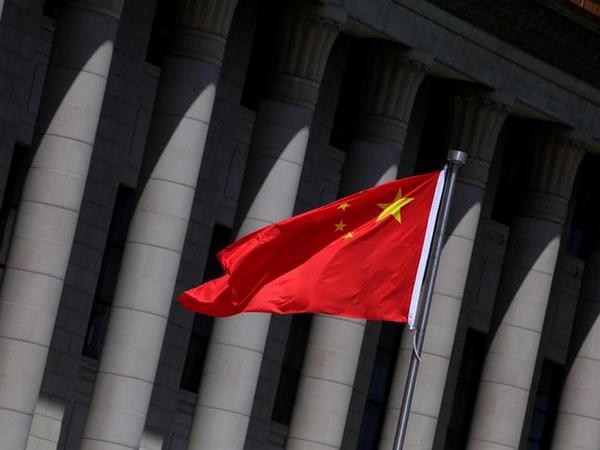The Russian invasion of Ukraine presented the Chinese leadership with a huge strategic problem. Yun Sun, director of the Stimson Center’s China Program in Washington, D.C., said that Russian President Vladimir Putin effectively duped China into creating the impression that China backed the Russian invasion, despite the fact that Beijing had neither expected nor authorized the conflict.
The Carnegie Endowment for International Peace’s Evan Feigenbaum identifies three competing and contradictory objectives in the Russian-Ukrainian war: China’s strategic partnership with Russia, commitment to long-standing foreign policy principles of “territoriality” and “non-interference,” and a desire to minimise collateral damage from EU and US sanctions. After being taken by surprise, Beijing launched a diplomatic push to square the impossible circle. From February 24 to May 19, Beijing had 64 diplomatic talks with international colleagues to address the ongoing conflict in Ukraine. This diplomatic effort is divided into two sections. The first stage concentrated on Western nations in order to manage the impact of Western policy results. On March 15, US National Security Advisor Jake Sullivan met with Politburo member Yang Jiechi and reiterated the United States’ commitment to a cohesive NATO. Following the Sullivan-Yang meeting on March 15, China’s diplomatic campaign moved its focus to poorer countries. Throughout both stages, Beijing highlighted three messages: NATO’s responsibility for the conflict, the need for peace talks, and opposition to Western sanctions against Russia.
The initial communication from China blamed NATO expansion for Russia’s invasion of Ukraine. China encouraged the West in more than half of its diplomatic engagements to “understand Russia’s legitimate security concerns” and “create a viable European security system through discussion.” Xi Jinping claimed “one hand cannot clap” while outlining the origins of the conflict in a video summit with US President Joe Biden, blaming the US and NATO for disregarding Russian concerns.
Foreign Minister Wang Yi stated in a meeting with Ukrainian Foreign Minister Kuleba that “one nation’s security should not be obtained by harming another country, and regional security should not be secured via military bloc expansion.” According to this comment, Wang defended the Russian incursion by blaming Ukraine’s desire to join NATO for endangering Russian security and bringing the invasion upon itself. Wang said in a meeting with Pakistan PM Imran Khan that “Ukraine should be the bridge between East and West rather than a pawn in a greater power conflict.” China’s second point was to condemn anti-Russia sanctions imposed upon the outbreak of the war. The Western countries responded in unison to the Russian invasion. On the day of the invasion, the United States, Canada, the United Kingdom, and a number of other nations imposed sanctions on Russian financial institutions and major oligarchs associated with the Putin government. The next day, the European Union imposed penalties on Russian officials, financial institutions, and exports. The West used its sanction trump card on February 26. The United States, the European Union, the United Kingdom, Canada, France, Germany, and Italy announced a concerted operation to withdraw. Russian banks from the SWIFT financial messaging system. The EU resolved on March 2 to remove seven significant Russian organizations from SWIFT by March 12.
Following the SWIFT restrictions, China began delivering anti- sanction messaging during diplomatic encounters. During a video meeting with French President Emmanuel Macron and German Chancellor Olaf Scholz, Xi stated that penalties will exacerbate the global economic crisis during the epidemic and “benefit no one.” In a meeting with French Foreign Minister Jean-Yves Le Drian, Wang not only reiterated Xi’s message but also chastised Western sanctions for impeding international law and escalating tensions. China has maintained the premise that the war should be ended by diplomacy since its inception. This comment, as Sun of the Stimson Centre pointed out, underscores Beijing’s intention to terminate the conflict as quickly as feasible. China, on the other hand, utilises this talking point to attack Western military help to Ukraine. China has slammed US military help to Ukraine as “throwing fuel to the fire,” obstructing the peace process.
During a phone discussion with then British Prime Minister Boris Johnson, Xi stated that the international community should “wholly advocate negotiation,” a veiled criticism of Western countries that simultaneously promote dialogue and offer military help to Ukraine. During the China-EU meeting on April 1, Xi warned that the international community should not “add oil to the mix.” Furthermore, China exploits moral assistance to further its own objectives. For the Chinese leadership, the Russian incursion is about more than just Europe; Beijing intends to exploit the conflict to warn the US and convey warnings to its neighbours. It’s a classic instance of “killing the chicken to scare the monkey,” only Beijing is using Moscow’s “chicken” to convey its own threats

